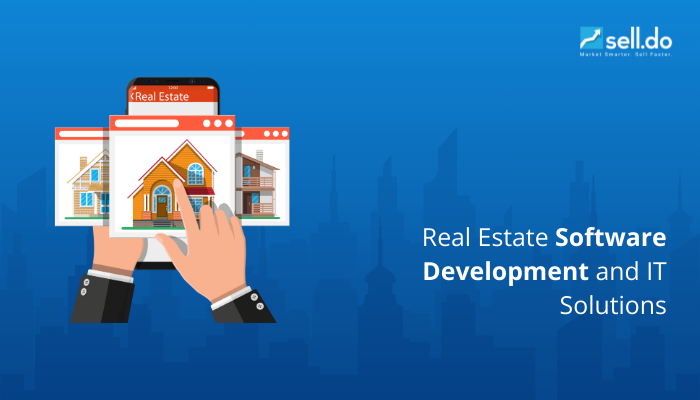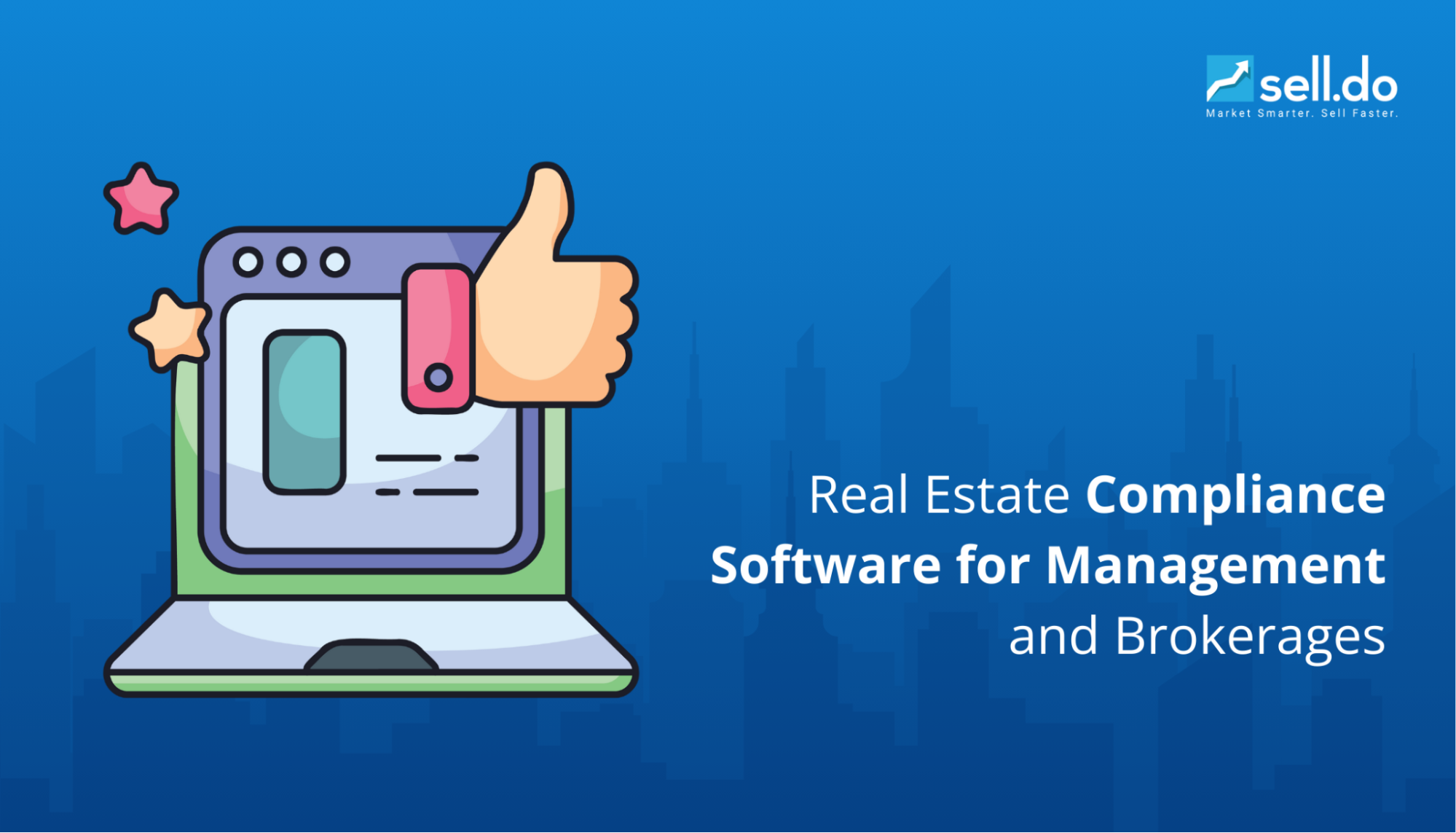Indian real estate is a rapidly growing industry. The demand for real estate is expected to increase by 15-18 million till the year 2025. This is a very fast pace of growth, and it is a challenge for the industry to sustain this pace with its traditional methods of operating. It needs an X factor- something that will help the industry evolve and keep up with the changing times. That X factor is real estate CRM software! In order to understand how CRM technology can benefit this sector, we first need to understand what exactly this technology can do.
How Crm Software Works?
Customer Relationship Management, abbreviated as CRM, is a system that tracks and manages all your interactions with your consumers. While that is the basic idea behind such software, its benefits extend far beyond that:
- It is a centralized platform for all your data
- It helps to analyze the data & generate useful insights
- It allows you to visualize the complete purchasing journey of your consumers
- It helps you identify the strengths and weaknesses in your operations
Once a CRM takes over these vital aspects, a business can streamline its end-to-end operations. CRM software for real estate performs all these tasks for a business, and also helps it scale it sales. It is hence no surprise that the real estate CRM industry is expected to be valued at $15.8 billion by 2027.
Let us explore why such software is so crucial for the industry, and how CRM works in real estate.
Why Does Real Estate Need Crm?
Real estate offers high involvement products, and the buying cycle of its consumers is also longer. Hence, certain challenges come up that are specific to this industry. These challenges can only be resolved through CRM.
1. large Volumes Of Data:
Due to the large-scale functioning of the real estate sector, there are large volumes of data that are generated. This data could be about pre-sales efforts, marketing metrics, Channel Partner transactions, payment details, etc. It is impossible for a real estate business to be able to manage all this data without CRM in place.
2. The Need To Keep Customers Engaged:
Real estate buyers must be kept engaged throughout the long buying journey. It is only through the right engagement strategies that the consumers will be convinced to close a deal. To boost its sales, a real estate business must implement targeted communication & marketing strategies.
3. The Need To Fast Identify Problems In The Operations:
The sector does not have very frequent transactions, and all its transactions are of high value. Hence, a real estate business in this sector cannot afford to have unaddressed problems in its operations, because the chances to rectify it do not come as often. CRM tools help to identify these errors, which can then be rectified to improve the overall operations.
How Crm Works In Real Estate?
The first and foremost way in which CRM works is by helping the industry tackle its unique challenges, as mentioned above. Besides this, its work extends to the following aspects of a real estate business:
1. Efficient Lead Management:

Leads are the potential consumers of any business. Managing these leads well is the key for a business to be able to convert them into sales. If a business is working with 5-6 leads that come in from a single source, it is easy to manage them manually. However, what if there are 100-150 leads, coming from multiple sources? If these are managed manually, it will surely cause some leads to be missed, or their data to be misplaced. As opposed to this, CRM can help in lead management by:
- Automatically capturing leads from all sources
- Lead scoring, to help you focus on the right leads only
- Lead nurturing, through which you can develop good relations with your consumers
- Full funnel lead analytics, which enables you to keep track of all relevant details
2. Automated & Personalized Marketing:

Marketing is a vital activity to achieve sales. Using real estate CRM software can transform your marketing efforts and produce the best possible results for your business.
Automated marketing ensures that all your communications are sent in a timely and systematic manner. If this had to be done without tech intervention, there’s always a chance of delays. Furthermore, it allows you to personalize your marketing efforts to address the specific pain points of your customers.
3. End-to-End Sales Management:

Real estate businesses have 3 crucial aspects associated with their sales process.
First comes Pre-Sales, which is the primary touchpoint of a consumer with your brand. You can optimize your pre-sales efforts through certain features provided by CRM, like automatic lead routing.
The second aspect is Sales. To streamline real estate sales, CRM can undertake a variety of tasks:
- Tracking & Management of site visits
- Using real-time data to create a good site experience
- Management of inventory
- Creation of Sales Pipeline, that allows you to visualize and track every sale till its point of conclusion
Lastly, there is Post-Sales management. With respect to the real estate sector, post-sales services entail the creation and execution of agreements, legal compliances, or management and storage of documents. CRM does all these tasks efficiently and effectively.
In this way, the work of CRM software for real estate optimizes the entire operations of any business. Sell.Do- India’s only integrated real estate CRM solution, has a robust feature set to help you scale your real estate business. It is the ideal companion for you to boost your sales and enhance the productivity of your teams.









Leave a comment
Comments (0)
Be the first one to comment.